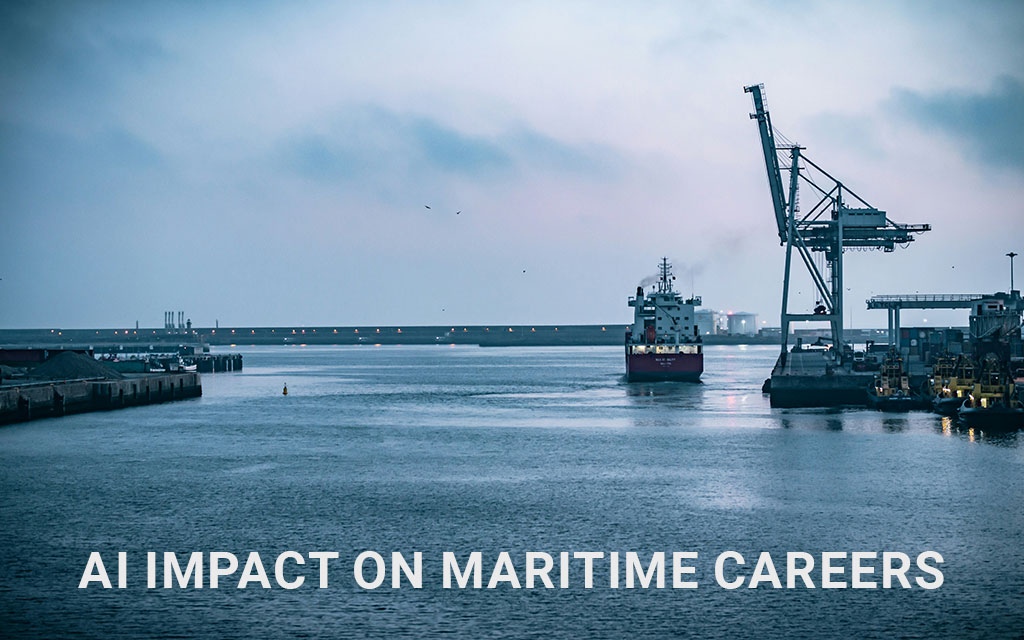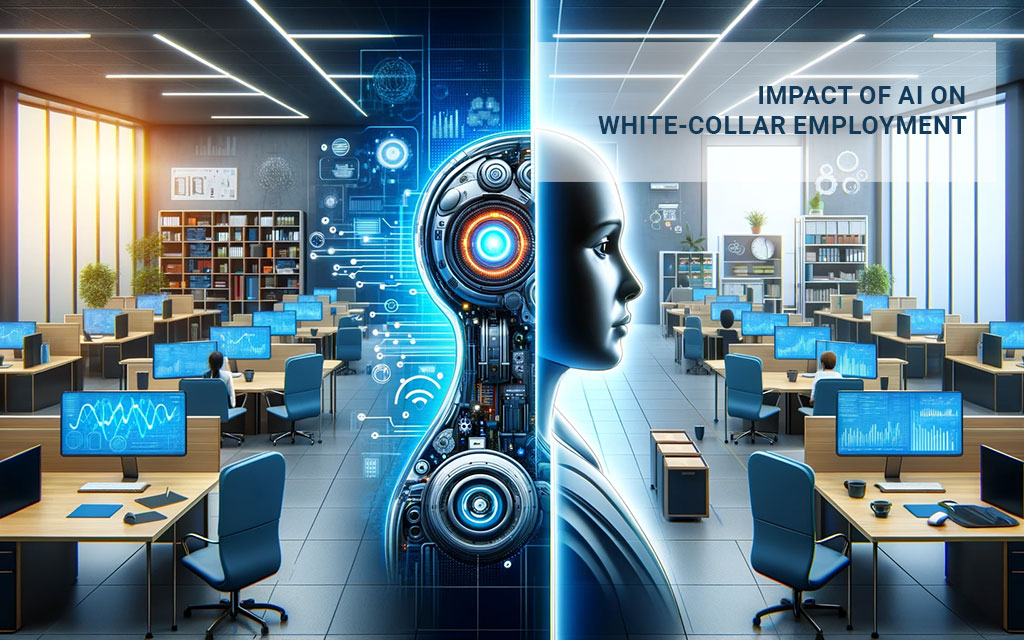Table of Contents
Artificial intelligence (AI) is revolutionizing various industries, and the maritime industry is no exception. The integration of AI has the potential to transform maritime operations, leading to increased efficiency, cost savings, and improved safety. However, with these advancements come concerns about the impact of AI on maritime jobs and the need for risk assessment.
The use of AI in the maritime industry can automate tasks, streamline operational processes, and enhance decision-making. This has the potential to significantly improve efficiency and reduce costs. However, there is a fear that AI could replace human workers in repetitive and routine tasks, leading to potential job losses.
It is crucial to assess the risks that AI poses to maritime careers. While job roles may evolve and some tasks may be automated, new opportunities may also arise. Professionals in the maritime industry must be adaptable and develop skills that complement AI systems.
In this article, we will explore the role of AI in the maritime industry and its potential impact on jobs. We will delve into the benefits AI brings, the potential risks it poses, and the need for a balanced approach to ensure the successful integration of AI in the maritime sector.
The Role of AI in the Maritime Industry
Artificial Intelligence (AI) is revolutionizing the maritime industry, transforming operational processes and decision-making. With the integration of advanced technologies, automation powered by AI is streamlining tasks and optimizing efficiency in maritime operations.
AI algorithms have the capability to analyze vast amounts of data from sensors and other sources, providing valuable insights to enhance fuel consumption, vessel performance, and overall operational effectiveness. This data-driven approach enables the industry to make data-supported decisions for increased cost savings and improved safety.
One of the key advantages of AI in the maritime industry is its ability to enhance situational awareness. AI-powered systems can continuously monitor and analyze complex maritime environments, detecting anomalies and potential hazards in real-time. This proactive approach to risk management enhances safety and allows for timely intervention to prevent accidents or mitigate their impact.
“The integration of AI in the maritime industry is a game-changer. It enables us to automate routine tasks, optimize operational processes, and enhance safety. AI has the potential to revolutionize the way we operate in the maritime space.” – Captain Emma Thompson, Maritime Operations Manager at XYZ Corporation
The increased efficiency and accuracy provided by AI technologies result in significant cost savings for maritime companies. By automating navigation, cargo handling, and maintenance processes, the industry can reduce manual errors and improve overall operational productivity. This, in turn, leads to streamlined workflows and enhanced profitability.
The advancements in AI technology are reshaping the maritime industry, unlocking new opportunities for growth and development. However, as with any disruptive technology, there are also concerns about potential job losses. In section 3, we will delve deeper into the potential impact of AI on maritime jobs and discuss strategies to mitigate its effects.
Image:
Potential Impact of AI on Maritime Jobs
While AI has the potential to bring numerous benefits to the maritime industry, there are concerns about its impact on jobs. Automation powered by AI could replace some tasks currently performed by humans, leading to potential job losses. Routine and repetitive tasks, such as data entry, monitoring, or even piloting, could be automated through AI technology.
However, it is important to note that AI is more likely to augment human capabilities rather than replace entire job roles. The implementation of AI in maritime operations may require the development of new skills and the retraining of workers to adapt to changing job requirements.
The Need for Job Reskilling and Adaptation
As AI technology continues to advance, workers in the maritime industry must be prepared to adapt to changing job requirements. While some tasks may be automated, new job roles may also emerge that require human expertise working alongside AI systems.
It is crucial for maritime professionals to acquire the skills and knowledge necessary to collaborate with AI and leverage its benefits. This could include learning how to operate and maintain AI-powered systems, understanding data analysis and interpretation, and developing critical thinking and decision-making skills.
Ensuring a Smooth Transition
The successful integration of AI into maritime operations requires a strategic and thoughtful approach. Organizations in the industry must prioritize workforce planning and actively support their employees through reskilling and upskilling initiatives.
Efforts should be made to identify areas where AI can enhance job performance and create opportunities for workers to collaborate with AI systems. By fostering a culture of continuous education and professional development, maritime companies can ensure a smooth transition to the AI-powered future while minimizing the potential negative impacts on jobs.
| Impact of AI on Maritime Jobs | Description |
|---|---|
| Automation | AI-powered automation could replace routine and repetitive tasks currently performed by humans. |
| Job Losses | Job roles that can be fully automated may experience a decline in demand, potentially leading to job losses. |
| Skill Development | The implementation of AI may require workers to develop new skills to effectively collaborate with AI systems. |
| Augmentation | AI is more likely to augment human capabilities, leading to the creation of new job roles that require both human expertise and AI assistance. |
Despite the potential impact on maritime jobs, it is important to recognize that AI presents opportunities for increased efficiency, cost savings, and improved safety in the industry.
By embracing AI technology and proactively adapting to the changing job landscape, maritime professionals can secure their future careers and contribute to a sustainable and thriving industry.
Conclusion
The impact of AI on maritime careers is constantly evolving, and professionals in the industry must adapt to the changing landscape. While there may be concerns about job automation, integrating AI technology into maritime operations also brings new opportunities.
Instead of fearing job losses, maritime professionals can focus on developing skills that complement AI systems. By understanding and leveraging the benefits that AI can bring, individuals can stay ahead in their careers and flourish in this new era of maritime technology.
Collaboration between humans and AI is key. This synergy can lead to improved decision-making, increased productivity, and enhanced safety in the maritime sector. Rather than replacing human workers, AI can augment their capabilities and enable them to perform tasks more efficiently.
Ultimately, successful integration of AI in the maritime industry requires a balanced approach. It is crucial to acknowledge the potential risks while also recognizing the countless job opportunities and benefits that AI offers. By embracing adaptation and working alongside AI, professionals can navigate the future of maritime careers and create a sustainable and prosperous industry.
FAQ
How can artificial intelligence (AI) impact maritime careers?
AI has the potential to impact maritime careers in various ways, such as improving efficiency, reducing costs, and enhancing safety in maritime operations.
What are the concerns regarding AI’s impact on maritime jobs?
There is a concern that AI could lead to job losses in the maritime industry due to automation and the use of advanced technology.
How is AI utilized in the maritime industry?
AI is increasingly being utilized in the maritime industry to improve operational processes and decision-making, with automation technologies powered by AI streamlining tasks such as navigation, cargo handling, and maintenance.
What benefits can AI bring to maritime operations?
AI algorithms can analyze vast amounts of data from sensors and other sources to optimize fuel consumption and vessel performance, enhance situational awareness, and assist in detecting anomalies or potential hazards, leading to increased efficiency, cost savings, and improved safety.
Is there a risk of job losses due to AI in the maritime industry?
Yes, automation powered by AI could replace some tasks currently performed by humans, potentially leading to job losses, particularly in routine and repetitive tasks such as data entry, monitoring, or piloting.
Will AI completely replace human workers in the maritime industry?
It is important to note that AI is more likely to augment human capabilities rather than replace entire job roles. Collaboration between humans and AI can lead to improved decision-making, increased productivity, and enhanced safety in the maritime sector.
How should professionals in the maritime industry adapt to the integration of AI?
Professionals should focus on developing skills that complement AI systems and leverage the benefits that AI can bring. The implementation of AI in maritime operations may require the development of new skills and the retraining of workers to adapt to changing job requirements.
What should professionals in the maritime industry consider when it comes to the impact of AI on job opportunities?
While some job roles may be at risk of automation, new opportunities may also arise as AI technology is integrated into maritime operations. It is important for professionals to adapt to the changing landscape and assess the potential risks and opportunities that AI presents.
What is the key to successfully integrating AI in the maritime industry?
The successful integration of AI in the maritime industry requires a balanced approach that takes into account both the potential risks and the opportunities it presents. Collaboration between humans and AI, along with the development of necessary skills, can lead to positive outcomes in terms of decision-making, productivity, and safety.













